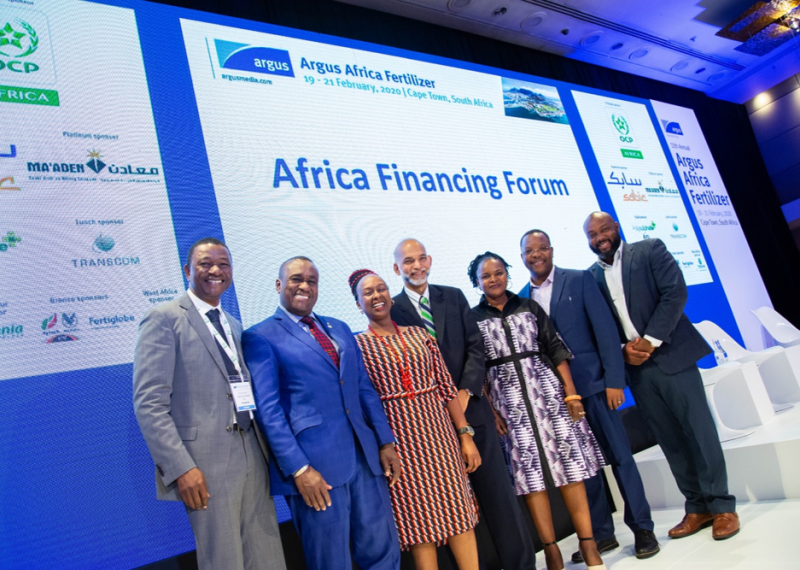he African Development Bank (https://www.AfDB.org) urged development finance institutions, NGOs, farmer cooperatives, and the private sector to develop more effective financing solutions for Africa’s fertilizer value chains. The Bank’s call to action came during the Argus Africa Fertilizer Conference held on 19 February. The conference’s theme was Supporting the fertilizer value chain to improve agricultural productivity and economic growth in the region.
“Appropriate investment and financing of the entire fertilizer value chain has become a precondition for achieving our continental objectives in the area of agricultural development,” said Marie-Claire Kalihangabo, coordinator of the Africa Fertilizer Financing Mechanism, during a forum on the side-lines of the Conference.
AFFM is a Fund managed by the African Development Bank to accelerate agriculture development in line with the Bank’s High-5 priority, Africa Food Security Vision, the Sustainable Development Goals and the African Union’s Agenda 2063.
Bank and AFFM staff presented tools and strategies to remove pain points in the fertilizer value chains of African countries, including fertilizer guarantee instruments (http://bit.ly/
“The success of Africa’s agriculture agenda requires a synergistic approach that will bring down barriers and silos that are still hampering the development of the fertilizer sector in Africa,” said Mahamadou Nassirou Ba, Economic Affairs Officer at the United Nations Economic Commission for Africa.
Participants also discussed the need for closer cooperation between development partners and commercial banks to create exclusive fertilizer financing opportunities throughout Africa and bolster small and medium enterprises in the fertilizer sector. SMEs are thought to represent the key to providing smallholder farmers with quality fertilizer.
Edward Mabaya, Manager of the Bank’s Agribusiness Development Division said digital solutions like the e-wallet in Nigeria could play a more significant role in revitalizing and connecting the fertilizer supply chain. “The digital transformation can greatly help actors of the fertilizer value chain to streamline their processes and achieve better results.” Mabaya said during the AFFM’s forum.
The Forum provided an opportunity for Mali to showcase how effective public-private collaboration and better organization of value-chain actors helped raise the country’s fertilizer use to 50kg of nutrients per hectare. In achieving this, the country met a target set in the 2006 Abuja Declaration on Fertilizer for the African Green Revolution (http://bit.ly/
“The success story of Mali’s fertilizer expansion is partly due to the presence of inter-professional committees per crop,” said Oumar Guindo, General Manager of the Toguna Agro Industries, a fertilizer company based in Mali.






